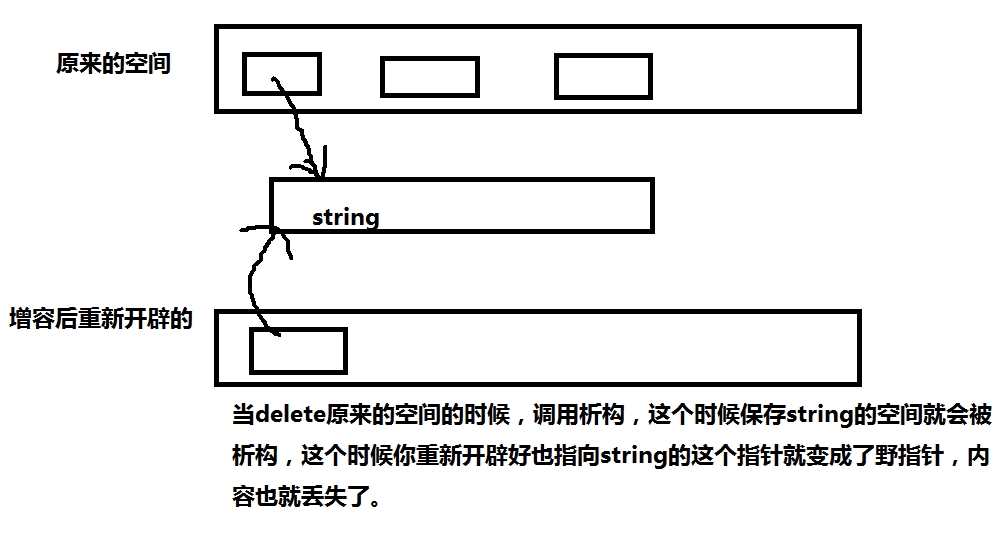C++之型別萃取技巧
阿新 • • 發佈:2019-01-25
在我們前面寫順序表的時候會產生一個問題。
使用型別萃取的原因
就是當你的順序表是自定義型別,我們進行順序表增容的時候,這個時候會出現一個問題,比如string型別,這個型別中有一個_buf與_ptr,當儲存少於16個的時候這時會儲存在_buf當中的,如果多於16個,那個會單獨開闢空間,進行儲存,這時拷貝的時候就是拷貝過去這個儲存的地址而已,所以這樣呼叫解構函式的時候,當增加容量的時候,這個時候會把儲存string的那塊空間進行釋放。會造成資料丟失的問題。
所以,在這裡面我們提到一個型別萃取的技巧,可以把自定義型別和內建型別的區分開,然後對自定義型別的使用for迴圈拷貝,對於內建型別的,採用memcpy的方式進行拷貝。
示例:
#include<iostream>
#include<stdlib.h>
using namespace std;
//型別萃取
struct __truetype
{
bool get()
{
return true;
}
};
struct __falsetype
{
bool get()
{
return false;
}
};
template<typename T>
struct typetraits
{
typedef __falsetype __ispodtype;
};
template 在這裡我們採用了模板的特化,這裡使用了全特化,直接給int,double等內建型別做特化。
在這裡我們設定內建型別是truetype,設定自定義型別是falsetype,然後我們通過不同的型別利用get()函式返回不同的布林值,這樣對內建型別採用memcp拷貝,對於非內建型別,採用for迴圈拷貝,這樣就能實現我們想要的結果了。

